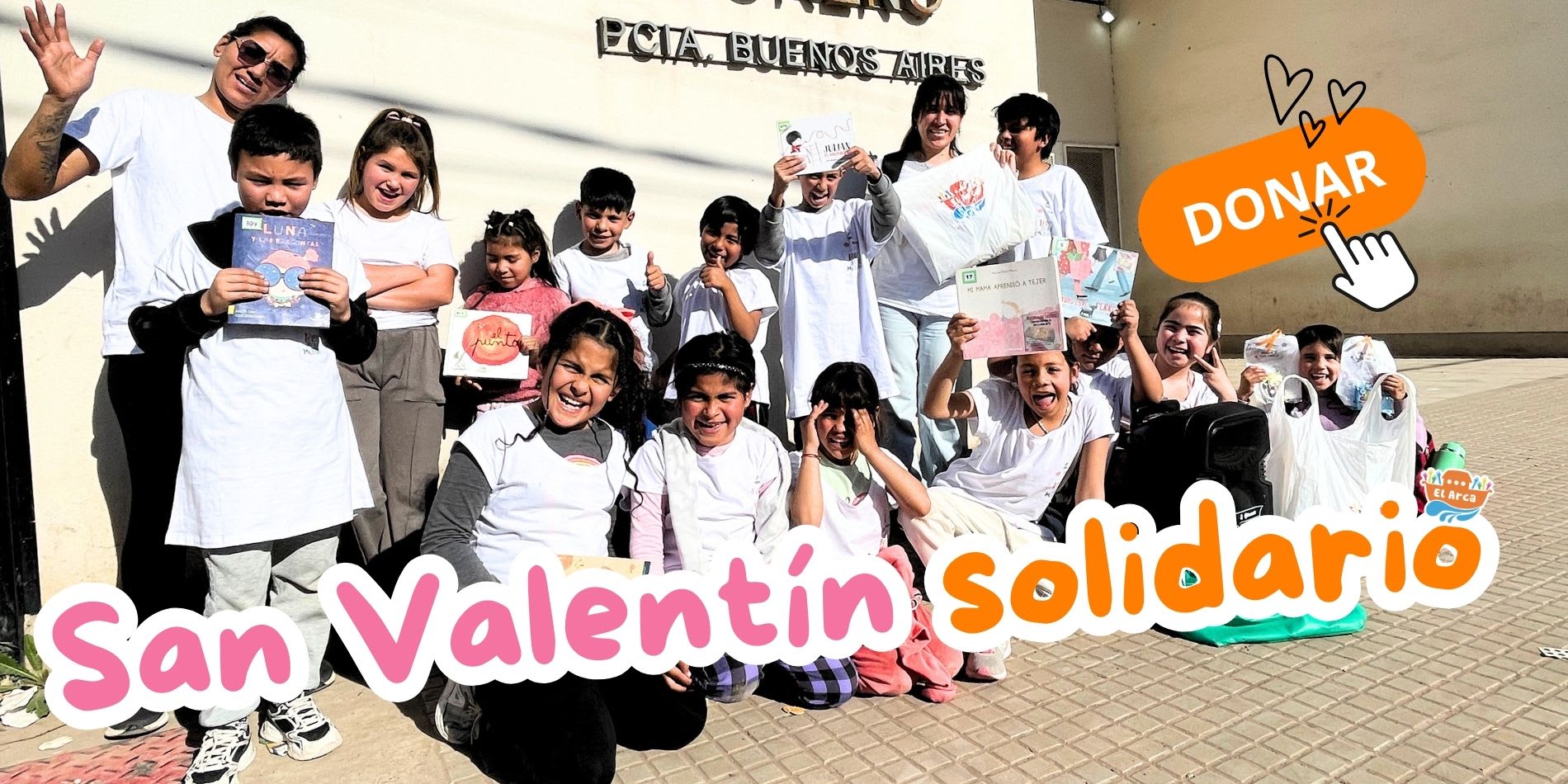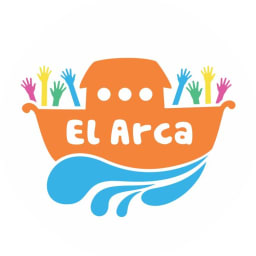
El Arca was founded in 1986 with the creation of a home for children and adolescents who lived on the streets. The institution eventually had three houses in operation and a program to support families. Thanks to this successful experience, more than three hundred boys and girls left the streets as a way of life. Many of them managed to return to their families of origin, others were housed in foster families and a large number grew up and achieved their independence accompanied by the institution. The project was sustained for twenty-five years.
In 2000, with the support of Arcor and Unicef, El Arca began to develop a project to build citizenship in Cuartel V, Moreno. The project is aimed at the population of girls, boys and adolescents in zone 2, which covers five neighborhoods and a population of approximately five thousand minors under 18 years of age. The project initially aimed to contribute to the full exercise of rights of children and adolescents, and worked in four dimensions: the social and educational dimension where the key word was inclusion, the political dimension where the key word was participation, the cultural dimension, and the key word was expression, and the legal dimension where the key word was enforceability. This project was born in the midst of a social, political and economic crisis in our country and in one of the poorest municipalities in the Buenos Aires metropolitan area. Its basis is the successful experience acquired in homes where the central dynamic was the participation of the children and adolescents housed there.
The citizenship building project was transformed and adapted to the political, economic and social changes of the province and the municipality. In 2003 we signed an agreement with the Comparte Foundation, an NGO from Barcelona, which supported our project until 2023, when it transferred its collaborative actions with Latin America to the organization EDUCO, which continues to support our cause to this day. This alliance allowed us to grow in the territory and sustain the project over time, reaping important achievements such as having presented two collective appeals with the active participation of children, adolescents and grassroots organizations. The first was to demand and achieve that the government of the province of Buenos Aires carry out a 1km asphalt road from route 25 to the El Vergel Cuartel V neighborhood and the construction and equipment of a health center.
La alianza con primero con Comparte y luego con Educo, también nos permite sostener un equipo de trabajo que año tras año monitorea la escolaridad de 1000 niños y niñas en escuelas primarias públicas para poder acompañar sus trayectorias y apuntalarlas en caso que sea necesario. Este programa logró desarrollar acciones de participación de niños, niñas y adolescentes en el ámbito institucional. En tres escuelas primarias públicas con grandes déficits estructurales y mucha sobrepoblación, generando allí asambleas de aula, delegados y espacios de reflexión colectiva. Gracias a esas acciones se lograron mejoras en los patios de las escuelas y disminución de la violencia entre pares en las aulas y en los recreos.
The program also managed to hold eight annual forums where approximately three hundred children and adolescents participated in each event and made proposals to improve their neighborhoods that were sometimes heard by local authorities. These forums were held in Cuartel V, and in 2022, the first Forum with the participation of children and young people from all over Moreno was held together with the Local Council.
From 2005 to 2015, with the support of Arcor, we coordinated RedOnda, a network of 25 organizations from 15 provinces, developing actions of leading participation and educational inclusion at the institutional and community level with a total of 40,000 children and adolescents. In 2014, in Mendoza, we held a national congress on the protagonism of children and adolescents with the participation of more than 500 boys and girls from 15 provinces. Between 2012 and 2014, we conducted training sessions on the participation of children and adolescents for municipal teams of children from various towns in Córdoba, Tucumán and Catamarca, convened by the Arcor Foundation. In 2014, within the framework of the strategic plan for the city of Arroyito, we conducted a survey of 600 children and adolescents in the city and supported the process of creating the City Council for Children.
In November 2015, HBO Latin America premiered Sembradores de Optimismo, an initiative dedicated to disseminating the work of organizations working on innovative educational projects in countries in the region. El Arca was chosen to represent our country.
Our citizenship-building project continues to be developed in Cuartel V, Moreno (Buenos Aires Province) and focuses on two fundamental pillars: the right to participation of boys and girls, and educational inclusion, placing special emphasis on gender equality and the eradication of any type of violence against girls and women.
Education Axis
In a context where the lack of school infrastructure is a central problem, we work with children, adolescents and their families so that no one is left out of school.
The Ark has promoted projects in schools and neighborhoods that seek to strengthen collective processes, improve educational processes, as well as address educational issues from a rights perspective that is inherent to all our work and through the leading participation of boys and girls.
We accompany the educational paths of approximately 1,000 children and adolescents each year. This may involve direct assistance in some situations, the management of school materials of different kinds (furniture, teaching materials, etc.), as well as the organization of demands regarding difficulties that affect the educational inclusion of boys and girls (transportation, access, building deficiencies, lack of educational establishments, etc.). All these actions are developed taking into account the agreements that can be established between the different actors in the community (school, municipality, community centers, children's council, etc.)
Our main actions in this area are: a mixed-gender soccer school in which 100 boys and girls participate, a traveling play center that travels through the neighborhoods promoting the right to play, a literacy program for primary and secondary school children, monitoring the educational path of 1,000 boys and girls, meeting points at the entrance of schools where we provide advice on rights, education, and we lend books and games. We also coordinate our work with schools to detect difficulties and situations that require support.
Participation axis
Since its origins, El Arca has worked with girls, boys and adolescents in projects that enable their individual and collective ideas, their voices and decisions. The initiatives carried out under this orientation have the particularity of seeking to encourage the participation of boys and girls in the organization and planning of tasks in different areas in order to include their considerations in the educational, recreational and sports projects of the neighborhood and to be taken into account in the preparation of public policies directed at children and adolescents.
El Arca has developed many experiences of participation in school institutions and at the community level. In addition to currently holding Councils of boys and girls in different parts of the neighborhood, it has organized eight Forums through which more than a thousand boys and girls have participated. This experience has provided us with a large number of methodological tools that we seek to share and enrich with the institutions of the neighborhood. In the last two years, the project includes joint initiatives with the municipal children's department and the Local Council to promote citizen participation throughout the municipality.
Our main actions in this area are: classroom councils in primary schools where boys and girls learn to resolve conflicts through words, support for the formation of student centres in secondary schools and territorial councils where boys, girls and educators meet every week to collectively think of ideas to improve their neighbourhood, which are then expressed and taken into account by the community and local authorities.
Fundraisers

Apadriná a un niño o niña en Argentina

San Valentín solidario: comienzo de clases en Argentina
- Raised
- $0
- Goal
- $3,000
Donors
Gabriela Lopez Mitnik1
